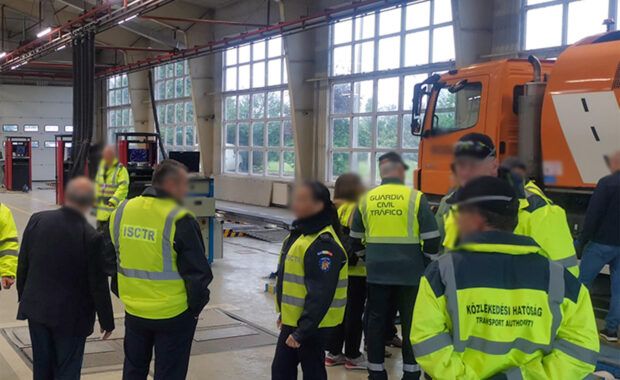The Commission welcomes today’s judgment of the Court of Justice of the European Union largely confirming that the Directive on adequate minimum wages stands on firm legal ground. Adequate minimum wages are essential for social fairness and a productive and inclusive economy. They help to protect workers’ purchasing power, reduce wage inequality and in-work poverty, support domestic demand and strengthen incentives to work. […]
Read MoreMEPs call for new rules on the use of algorithmic management at work
The Committee on Employment and Social Affairs is calling on the Commission to introduce a law to regulate the use of algorithmic technologies, including AI, within European workplaces. Employment and Social Affairs MEPs have agreed on a series of recommendations for a new EU bill to ensure the transparent, fair, and safe use of automated […]
Read MoreCommission releases €8.5 million from the European Globalisation Adjustment Fund to support 5,800 dismissed workers in Sweden
The European Commission has proposed to mobilise €8.5 million from the European Globalisation Adjustment Fund for Displaced Workers (EGF) to help 5,800 workers dismissed after the bankruptcy of Northvolt in Sweden. Founded in 2016, Northvolt faced major production challenges and global oversupply in the battery market. Its bankruptcy in March 2025 led to nearly 6,500 job losses. […]
Read MoreMEPs seek to improve trainees’ working conditions across the EU
To prevent abusive practices against trainees, the Employment Committee wants traineeship contracts with clear provisions on pay, duration and social protection. The Employment and Social Affairs Committee has proposed changes to new EU rules on traineeships, in a report adopted on Tuesday by 42 votes to nine, and with six abstentions. The objective is to […]
Read More2025 ESDE report highlights the importance of underrepresented groups
Better integrating underrepresented groups — such as women, older people, migrants and persons with disabilities — into the job market can help to mitigate skills and labour shortages and offset the demographic changes that risk shrinking the EU’s workforce by up to 18 million by 2050. The Commission’s 2025 Employment and Social Developments in Europe (ESDE) report […]
Read MoreCommission continues talks on telework fairness and right to disconnect
The European Commission is taking the next steps towards introducing workers’ right to disconnect and fair telework and launched today second-stage talks with social partners. These talks will gather EU social partner’s views on a potential EU-level initiative to reduce the risks of the ‘always-on’ work culture and to ensure fair and quality telework for workers. Concretely, social partners […]
Read MorePlanning to live abroad? Make sure your documents are in order
Moving abroad is an important life change that is both exciting and challenging. The list of things to take care of before you can feel settled in the new country is seemingly endless, and even the most meticulous planners will find themselves stressed at some point. One way to minimise the hassle associated with moving […]
Read MoreGaps on the European labour market 2024 continue to increase
The EURES report on European labour 2024 shows that persistent labour shortages, as well as surplus occupations in in European key sectors continue to rise. The seventh edition of this report, which gathers data from across 31 EURES countries, provides crucial insights into the nature of employment trends and needs to tackle shortages and surpluses. All 31 EURES countries […]
Read MoreMore Than 770 Violations Detected in Cross-Border Road Transport Inspections
The European Labour Authority coordinated a week of joint inspections held in Austria, Belgium, Cyprus, Greece, Hungary, Lithuania, Latvia, the Netherlands, Romania, Slovakia and Spain. A total of 564 freight and passenger vehicles were checked, resulting in the detection of 774 infringements. About one third of the vehicles and drivers ended up with a “clean” check, i.e. no infringement identified. […]
Read More








